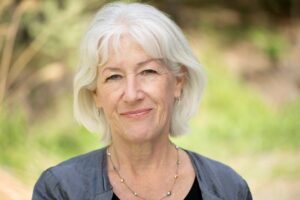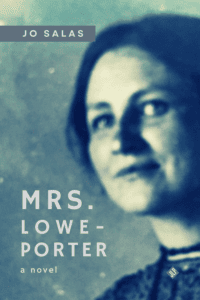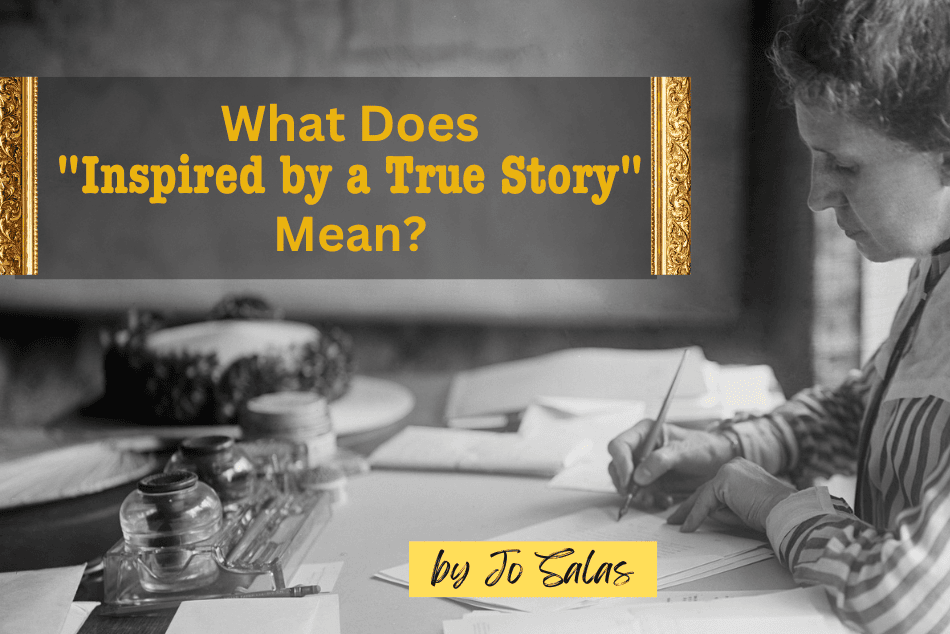Have you read The Magic Mountain? Or Buddenbrooks? Or Death in Venice? If you read them in English, you have a little-known American woman, Helen Lowe-Porter, to thank. The literary giant Thomas Mann balked at a female translator, but he might well owe his standing in the Western canon to her. Now we can learn her story by way of her not-quite-biographer Jo Salas.
What does it mean to make fiction out of historical fact?
What does it mean to a reader to know that a novel’s characters and events are “real”?
Lily King’s Euphoria worked on me as good stories do. From the very first lines I surrendered to its narrative urgency. I could picture—could almost smell—its upriver setting in the rainforests of New Guinea. I cared about its conflicted, passionate characters. The pages turned themselves: I had to know what happened.
Inseparable from my absorption in the story was my awareness that the people I was reading about were Margaret Mead and her then and future husbands, Reo Fortune and Gregory Bateson, though not under those names. If I hadn’t known ahead of time, the cover copy would have told me—”Inspired by events in the life of revolutionary anthropologist Margaret Mead…” I read the novel with the assumption that its extraordinary details were largely true, apart from a climactic event that I knew was invented. As soon as I’d finished I raced to a biography of Margaret Mead and learned that Euphoria does indeed reflect actual events, apart from that one highly dramatic departure from fact.
The knowledge that I was reading about the lives of actual people conditioned my reading experience. The novel did more than engross me and stir me, as any good novel would. It also informed me about these remarkable people and about the world that we all live in. For me, the story lived in a different realm from fiction spun solely from an author’s imagination (even if that imagination is fertilized by real-life experiences and perceptions).
Reading actual nonfiction is quite different. There, I’m not looking for a riveting story and literary richness (though I sometimes find both.) I’m reading to learn about humanity, to understand the world, to be an informed citizen. And I need to trust that the writer is telling me the truth, to the best of her capacity. I want to know the writer’s position in relation to her material, and the basis for her claims. Invention feels like betrayal.
A novel that is presented—explicitly, not covertly—as a novel has no such responsibility to honesty and accuracy, even if it is based on fact.
Writers may choose to render a true story as fiction because of the freedom it gives them to shape and interpret. Or simply because they’re novelists, not biographers. They seek to bring a set of truths into the light while telling a compelling story.
Fact-based fiction has an elastic ratio of history to imagination. Euphoria accurately depicts real people while also taking a sharp turn away from historical fact. Other novels might be almost-biography where the writer imagines conversations and thoughts but otherwise follows the documented events of a life, like Colm Tóibín’s recent novel about Thomas Mann, The Magician. In contrast, Jane Mendelsohn’s I Was Amelia Earhart has its heroine living an entirely imagined post-disappearance existence. An author may use real names, or not. The novel may or may not include an explanation for curious readers about which aspects are historically accurate. Lily King, who does not use real names in Euphoria, briefly discusses the story’s relationship to fact in the acknowledgments. The Invention of Wings by Sue Monk Kidd, about the abolitionist Sarah Grimké and the enslaved Hetty, has actual names in the text and extensive notes at the back.
I stepped into this territory myself with my second novel, based on the life of Helen Lowe-Porter, the translator of Thomas Mann. (My first novel featured Princess Diana, but the details of her life are so thoroughly documented that there wasn’t much ambiguity about fact versus fiction.)
Writing Mrs. Lowe-Porter, I summoned imagination to weave a narrative from the known elements of Helen’s life. I invented some characters and events and conflated others. I wanted to bring out the significance of her story as I understand it (awkwardly aware that my understanding might not be the same as hers): the unfair obscurity of a brilliant, high-achieving woman.
Helen Lowe-Porter translated the novels (and some nonfiction) of the great German writer Thomas Mann. Mann was already established as Germany’s pre-eminent novelist, though little known elsewhere. Helen’s translations introduced his work to the English-speaking literary public. In 1929, soon after her second translation, The Magic Mountain, Mann was awarded the Nobel Prize in Literature.
She remained Mann’s translator for 36 years.
Despite the essential part her translations played in his success, she remained invisible behind her androgynous professional name, H. T. Lowe-Porter, noticed only to be criticized. She and Mann slowly developed an affectionate friendship. But his appreciation, either private or public, was rare.
Helen’s own written words, and the words of others in her life, appear in my pages. They’re attributed to their sources in a section at the back, providing some transparency about what is “real.” Readers may still wonder—did this happen? Did that? I’ll tell anyone who asks.
Do you write fiction about a real person? How do you handle it? Let’s talk about it on the Career Authors Facebook Page.
 Jo Salas is a New Zealand-born writer of fiction and nonfiction. Winner of the Pen & Brush prose contest and nominated for a Pushcart Prize, she is a co-founder,
Jo Salas is a New Zealand-born writer of fiction and nonfiction. Winner of the Pen & Brush prose contest and nominated for a Pushcart Prize, she is a co-founder, performer, and chronicler of Playback Theatre. She lives in upstate New York. MRS. LOWE-PORTER is available from JackLeg Press.
performer, and chronicler of Playback Theatre. She lives in upstate New York. MRS. LOWE-PORTER is available from JackLeg Press.





